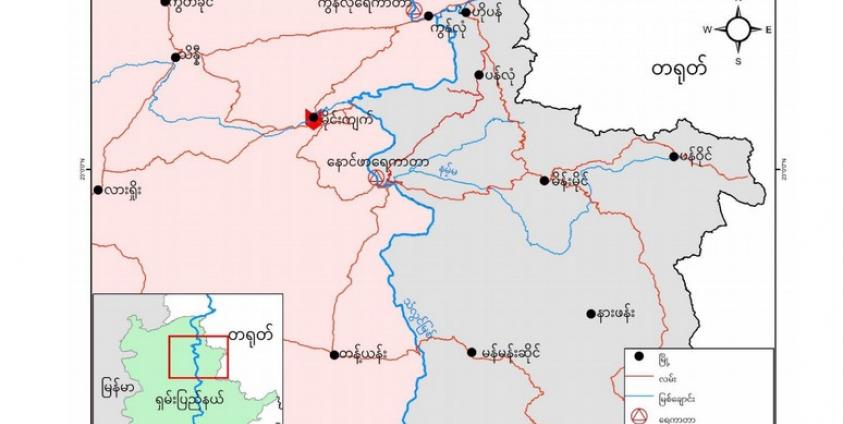Burma Army troops based in Mong Kyet village tract in Lashio Township, northern Shan State, have called upon locals to provide materials, transportation and labor to construct a military camp that once belonged to a local militia.
LIB 365, which operates under the “shock troops” of LID 99, has ordered villagers to send four vehicles to their camps in Wam Khant and Panshaw villages each day, filled with construction materials such as wood or bamboo.
Villagers were first ordered to procure and send 100 pieces of bamboo at least five feet in length in April 8, and another 100 on April 21. Each village in the tract has already sent 10 planks of wood as well as thatch material and bamboo strips for binding the materials. According to locals, the military has repeated the orders for villagers to cut and send wood and bamboo.

“Htawlagyi and cars are on standby at Wan Lon Mong Kyet every day,” Mong Kyet local San Sai Sam told SHAN, referring to local trucks. “The army ordered a driver to send things to the army’s camp in Panshaw on April 21. He was released on April 23.”
Burma Army troops occupied the base in Panshaw after raiding the headquarters of the Kawng Kha People’s Militia Force (PMF) in Kutkai Township and seizing drug production facilities in February. The Panshaw camp had previously belonged to the Kawng Kha PMF, also known as the Kachin Defense Army, which split from the Kachin Independence Army nearly 30 years ago and 10 years ago signed a ceasefire with the military and became a PMF.
A former PMF soldier who lives in Mong Yaw confirmed that the military had ordered area villagers to support their rebuilding of the base to suit their needs.
Local human rights groups have criticized the move, adding that forced labor is a crime that the Burma Army has been perpetrating “for many years.”
“From the perspective of international law, this is a war crime because people are being forced to work,” Sai Hor Hseng, of the Shan Human Rights Foundation, told SHAN. “If the government’s army is honest, they can try to seek a political solution at the negotiating table. If they can seek a political solution, they can resolve this kind of human rights abuse.”







